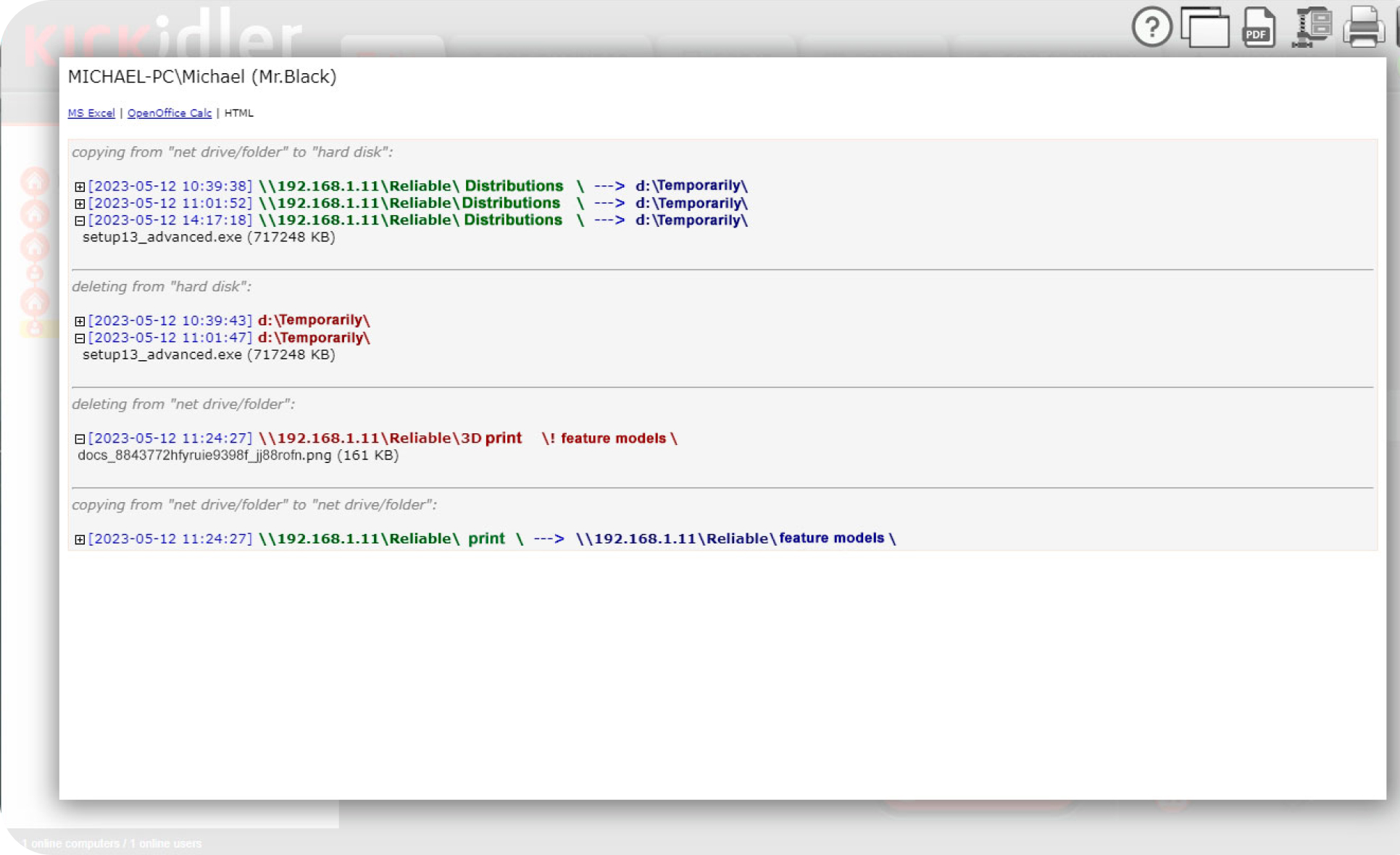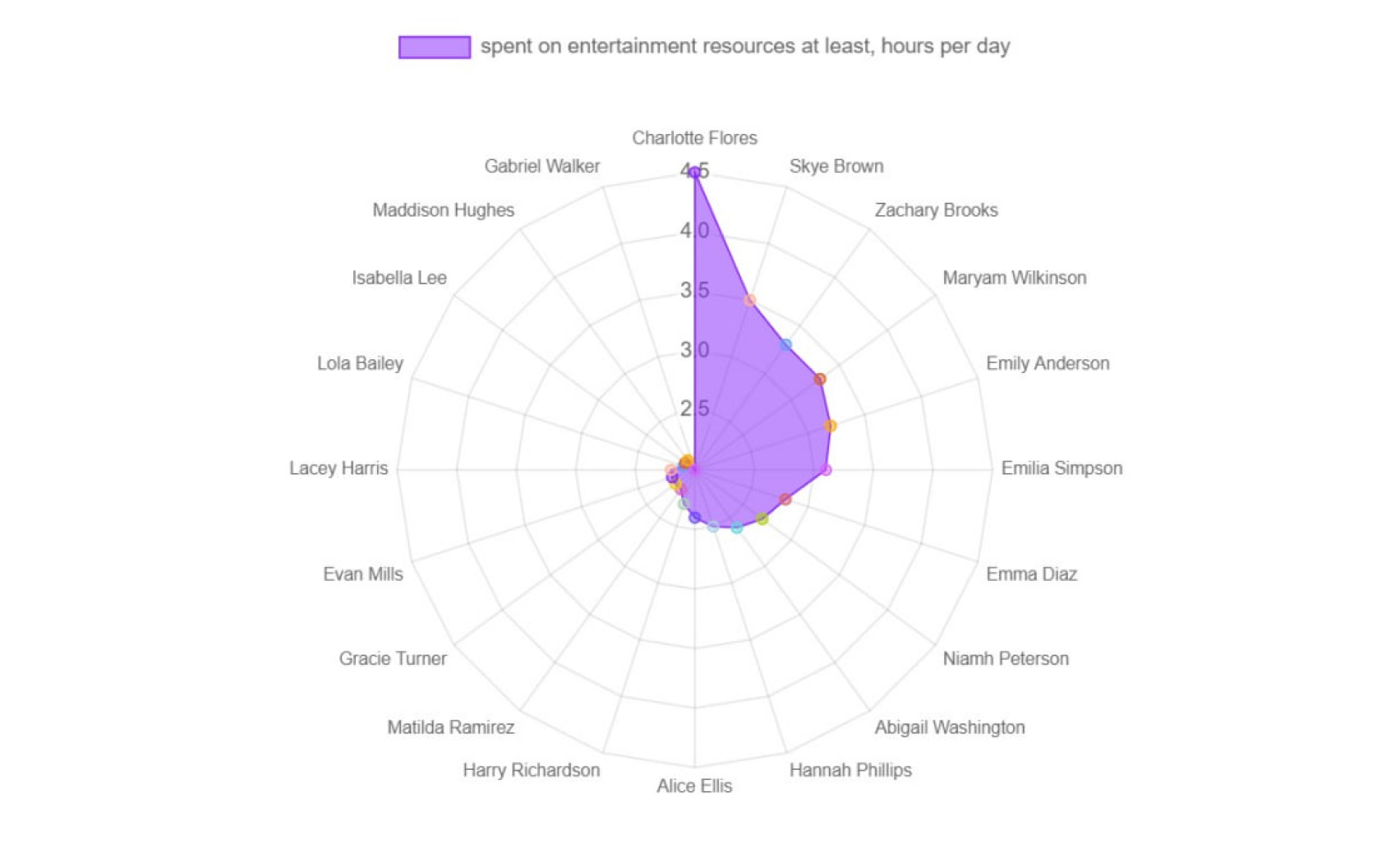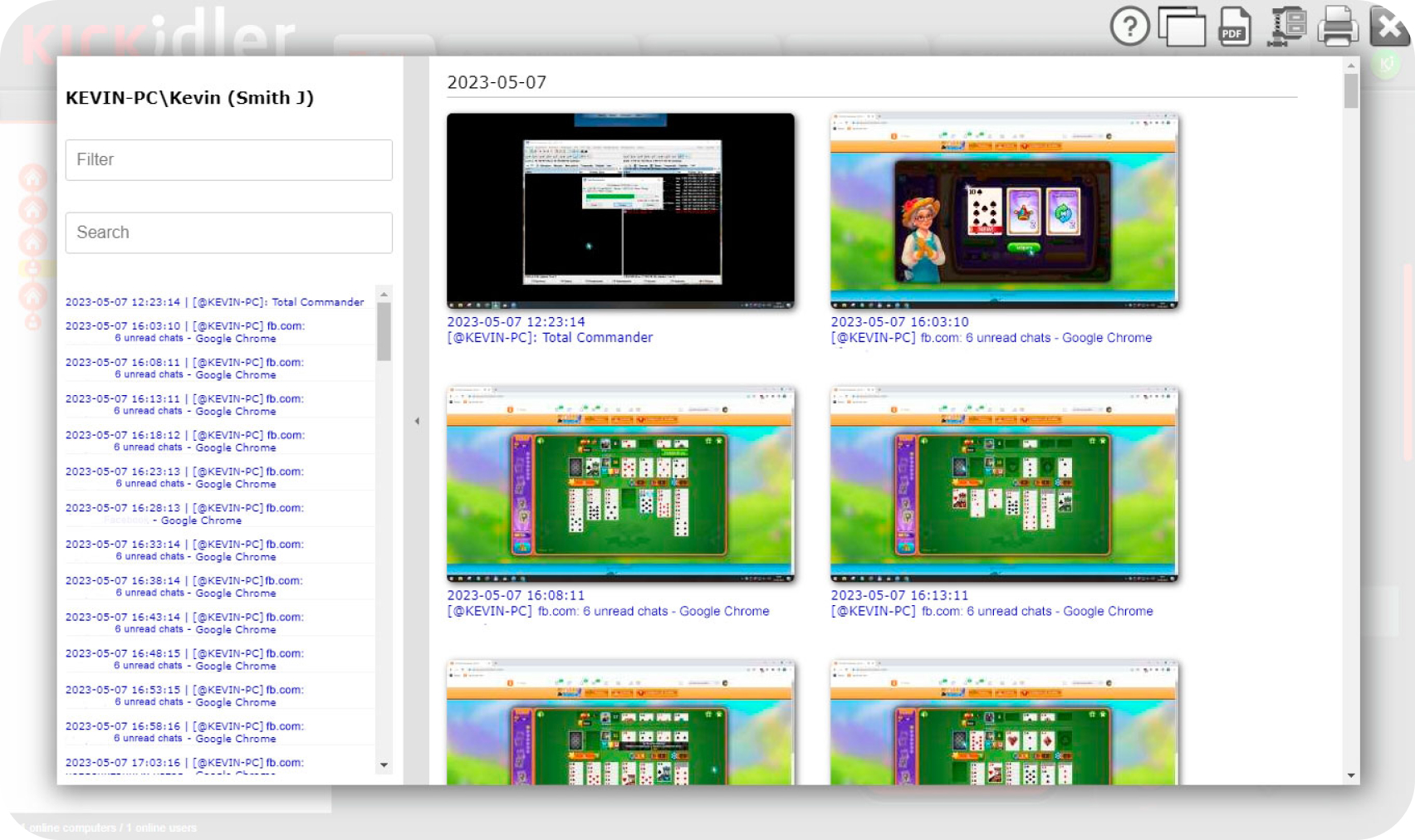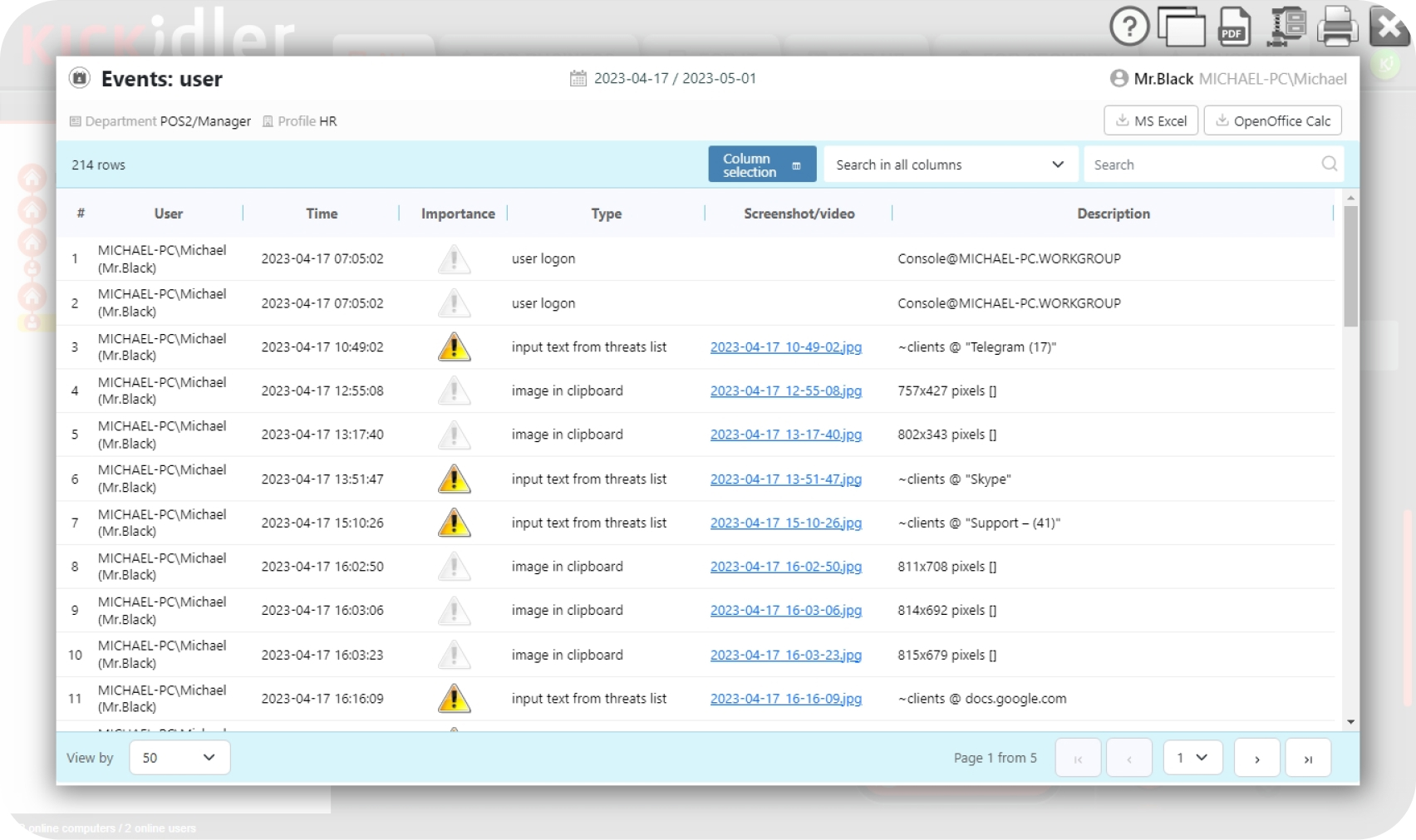
Key Features
The Data Loss Prevention (DLP) Solution for Linux Systems by Kickidler provides powerful protection against insider threats, accidental data exposure, and unauthorized data transfers. Designed for enterprises managing mixed OS environments, this Linux DLP software offers advanced data security and monitoring capabilities while ensuring minimal system impact.Core Capabilities
-
Comprehensive User Activity Monitoring
Capture screen video, keystrokes*, app usage, websites, clipboard*, file operations, and device connections to fully understand user actions and detect potential risks.
(*Telemetry availability may vary by OS version.) -
Policy-Driven Data Protection
Create and enforce DLP policies to detect and block sensitive data transfers via messengers, email, cloud drives, removable media, or terminal commands. The system can alert in real time and automatically respond. -
Multi-OS Management Console
Manage Linux, Windows, and macOS endpoints from one console, ensuring consistent control and visibility across platforms. -
Flexible Deployment Options
Deploy the DLP for Linux Systems on-premises, in distributed, or even air-gapped environments with full data sovereignty. -
Stealth or Transparent Modes
Operate in stealth mode for investigations or use transparent mode with employee notifications and consent, depending on compliance needs. -
Linux-Specific Security Controls
The Linux data loss prevention tool includes terminal command monitoring, blocking risky commands, and controlling data flow between devices, cloud services, and removable drives.

Benefits of Using DLP for Linux
The Kickidler Data Loss Prevention Solution for Linux empowers organizations to maintain data integrity, prevent leaks, and enhance workforce productivity — all while keeping data fully under their control.
Benefits of DLP
- Data Protection & Compliance
Prevent data exfiltration from Linux endpoints via unauthorized channels.
Meet internal governance and legal requirements with audit-ready logs and retention policies. - Visibility & Accountability
Gain full visibility into employee activity through continuous monitoring.
Reconstruct incidents with correlated video evidence and event logs. - Cross-Platform Control
Manage policies across Linux, Windows, and macOS systems from a single administrative panel. - Operational Efficiency
Automate data protection and reduce manual incident investigations.
Provide HR and IT with analytics for productivity and workflow optimization. -
Customizable for Any Environment
Works seamlessly with popular distributions like Debian, Ubuntu, Linux Mint, CentOS, RHEL, Fedora, and others.
Optimized for secure environments like Astra Linux. - Enhanced Endpoint Security
The Linux DLP system guards against file exfiltration, unsafe command execution, and misuse of removable storage devices. - Productivity Intelligence
Identify idle time and non-work-related activities to improve process efficiency.

Benefits of DLP Software for Businesses
Implementing a Data Loss Prevention (DLP) Solution for Linux Systems delivers measurable value beyond IT security. Businesses gain strategic advantages in compliance, cost savings, and operational resilience.
-
Stronger Data Governance
The Linux DLP system enforces consistent data handling rules across departments, reducing the risk of accidental or malicious data exposure. Businesses gain better control over where sensitive information flows.
-
Reduced Financial & Reputational Risk
Data breaches and insider leaks can cost millions in fines and brand damage. A robust DLP tool for Linux protects against these losses by proactively identifying and preventing data exfiltration.
-
Increased Employee Accountability
With detailed monitoring and behavior analysis, organizations can detect suspicious activities early and ensure employees follow data protection protocols responsibly.
-
Improved Operational Efficiency
By automating security responses and data classification, businesses save time, reduce administrative overhead, and allow IT teams to focus on strategic tasks instead of manual incident handling.
-
Better Collaboration & Remote Work Security
The Data Loss Prevention for Linux OS ensures that remote and hybrid teams can collaborate safely without risking data integrity—ideal for distributed and global organizations.
-
Compliance and Audit Readiness
Maintain detailed evidence logs and activity histories for easy auditing and compliance reporting—critical for industries such as finance, healthcare, and manufacturing.

Quick start on Linux
- Install the Server on a supported distro and configure PostgreSQL per guide.
- Install the Client (Agent) on user workstations via RPM/DEB, then point it to the server (e.g., stkh-client --server=<ip>).
- Join the Viewer/Admin console, create DLP policies, and start monitoring.

 ENG
ENG 